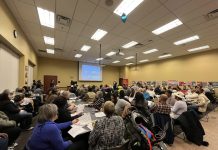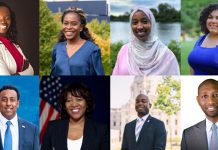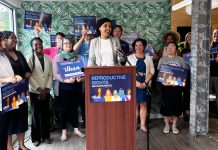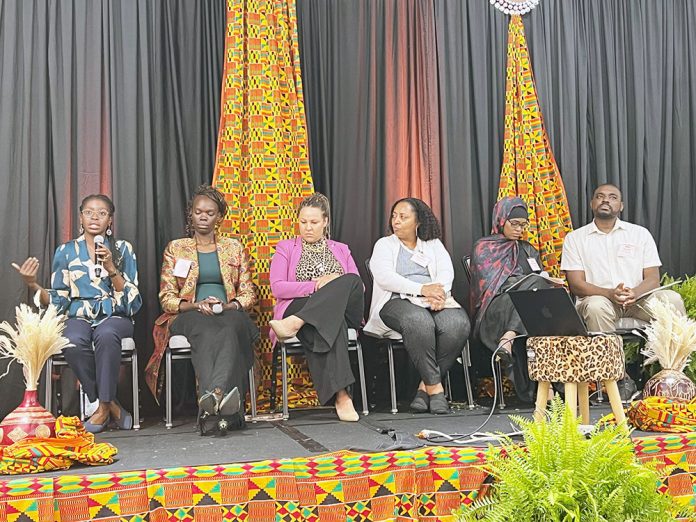
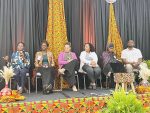
African immigrants should push their elected officials to ensure that they are not left out of the distribution of mental health resources, according to two lawmakers from the community.
Rep. Esther Agbaje and Rep. Huldah Momanyi-Hiltsley were speaking on Friday in Brooklyn Center at the 11th annual African Mental Health Summit. The lawmakers encouraged individuals to communicate with their representatives to properly identify key community needs and appropriately allocate resources.
“The role of the legislature is to provide resources,” said Agbaje , a Nigerian American who represents District 59B in the Minnesota House of Representatives. “You get what you advocate for.”
Agbaje, whose constituency includes parts of downtown and north Minneapolis, also spoke about the importance of open communication with lawmakers to develop response programs that are culturally competent.
This year’s summit, which had a theme of “Elevating Voices, Expanding Access: Community Interventions Driving Mental Health Data and Transformation”, is the latest in a long campaign by local leaders, organizers, and health professionals to address the issue of mental health in the African community.
In addition to the challenges of dealing with the stigma of mental health professionals and nonprofit organizations working in the African community say they are often underfunded.
In 2023 Minnesota lawmakers allocated $98 million for mental health services for the years 2024 and 2025, but community leaders say underrepresented communities of color did not get their fair share. The elected representatives said they wanted to make sure that in January 2026, when Minnesota state legislatures will allocate funds for the next two years, underrepresented communities will not be left out.
Momanyi-Hiltsley, who was born in Kenya and represents District 38A, encouraged community leaders and citizens to communicate with their state representatives to make sure state policies reflect the needs of various communities.
“I know money is important,” she said. “Policy is also important.”
Momanyi-Hiltsley, whose district includes parts of Brooklyn Park and Osseo, was also one of leaders from the community who received an award for their contribution to mental health initiatives in the African immigrant community. She was awarded the Excellence in Policy Leadership in Mental Health Award.
In the past few years, the Twin Cities area has seen an increasing in the rate of substance abuse and self-harm among young men of African descent, who are twice as likely as whites to die from drug overdose. The summit focused on the need for counseling and resources as a way to prevent substance abuse because the disorder is a mental illness comorbidity, a medical term used when two disorders or illnesses occur in an individual simultaneously or sequentially. More than 60% of adolescents with substance abuse meet the criteria for a mental health diagnosis, according to the United States National Institute of Health.
Rapheal Omoto, a doctor of nurse practice and mental health professional, said he began learning about mental health after his best friend died from accidental alcohol poisoning. His friend’s death also made him reflect on his own mental state.
“I was also an addict because I didn’t know about mental health,” Omoto said.
Omoto, who moved from Kenya 10 years ago, now runs a practice that focuses on providing care that is culturally sensitive.
“Speaking about your mental issues is not a weakness,” he advised. “The earlier you talk about your issues the better.”
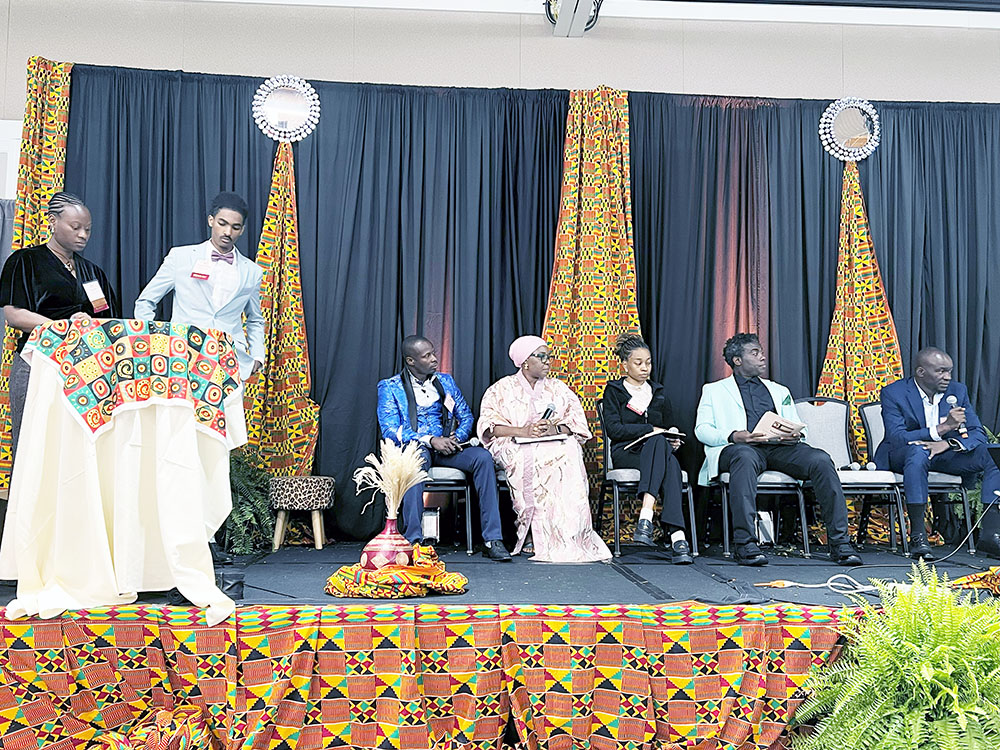
The conversation of mental health is still taboo in many African and minority communities because of the stigma it carries. Individuals often fear gossip and community isolation if they discuss their mental challenges. Cultural shifts and expectations often leave children of immigrants managing societal and cultural expectations on their own which results in mental pain and isolation.
For 21-year-old Joshua Negussie, a child of Ethiopian immigrant parents, the pressures of balancing both worlds almost resulted in him losing his life. After surviving two suicide attempts, he credited his sister with helping to save his life.
“She offered a presence, a place to cry, a reason to stay,” he said.
Negussie has also found community and expression through acting.
“It was the first place I was allowed to cry without consequence,” he said. “I learned that vulnerability is the most important component to human change, real vulnerability is emotional intelligence.”
Mental health services can be accessed through private insurance. There are local organizations that work with individuals on Medical Assistance to provide mental health services and counseling as well. If you are a community leader who is unsure of which state agency to contact with regards to your community, the office of Governor Tim Walz and Peggy Flanagan has public engagement liaisons that can connect you with the proper agency.
Mshale was one of the awardees at the summit. The newspaper was honored for Excellence in Voice of the Diaspora for its continued dedication to uplifting and amplifying African voices in the state of Minnesota, as well as its commitment to share resources with the community, including those related to mental health.
About Cynthia Simba, Mshale Reporter
Cynthia is a graduate of the University of Minnesota School of Journalism. She has interned at Mshale and Voice of America and previously worked at the Minnesota Daily. She recently returned from Seoul, South Korea where she was an English educator.


